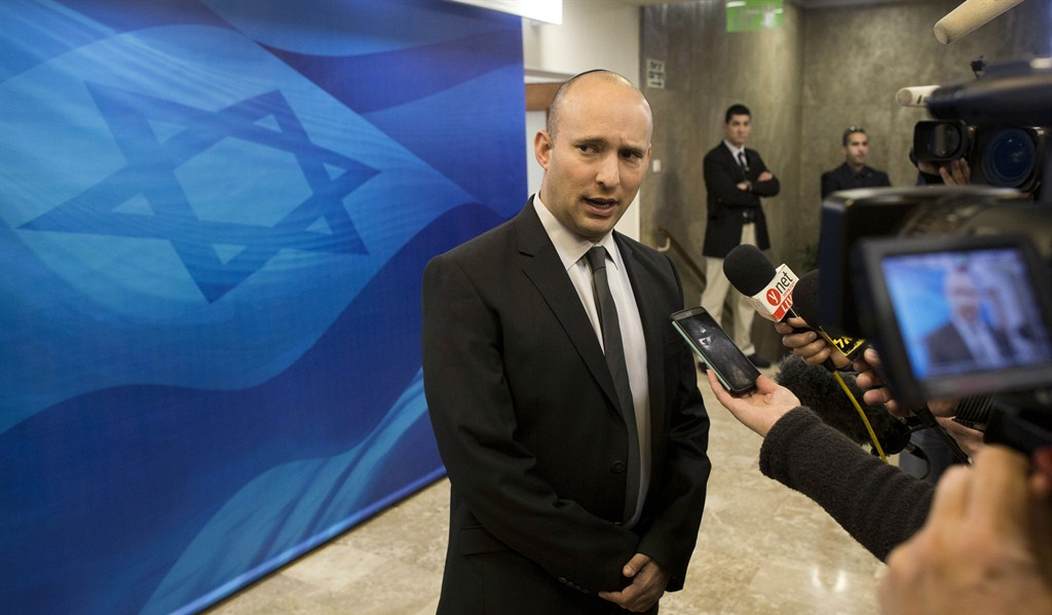Give credit to both Benjamin Netanyahu and Naftali Bennett for this olive branch to the otherwise feckless Palestinian Authority. After months of planning, Israel plans to boost Palestinian vaccinations by “loaning” as many as 1.4 million doses of its Pfizer vaccines. The Palestinian Authority will pay back the doses when it gets its allotment later through international relief organizations:
The new Israeli government announced on Friday that it would give up to 1.4 million coronavirus vaccine doses to the Palestinian Authority in a trade that will see the authority donate a similar number back to Israel once its own delayed supply arrives later in the year.
The office of Prime Minister Naftali Bennett of Israel said that the country would give the Palestinian Authority 1 to 1.4 million doses of the Pfizer-BioNTech vaccine that would otherwise have expired and that the authority would return the favor in September or October.
Negotiations over the deal began in secret several months ago, before Mr. Bennett’s government replaced that of Benjamin Netanyahu, who was replaced by a narrow vote in Parliament last Sunday.
The Palestinians have applied for vaccines through COVAX, the international consortium put together by Western nations to distribute vaccines equitably. COVAX has a backlog and a serious problem with acquisition at the moment, although the Biden administration pledged 25 million doses by the end of this month. The Israelis decided to get in front of the COVAX effort, in part to accelerate vaccinations and in part because these vaccines are nearing their expiration dates:
Israel is to provide around one million doses of Covid-19 vaccine to the Palestinian Authority in a swap as their expiry date looms, the Israeli prime minister’s office said Friday.
“Israel has signed an agreement with the Palestinian Authority, and will supply approximately one million doses of Pfizer vaccine that is about to expire,” Prime Minister Naftali Bennett’s office said, in a joint statement with the defence and health ministries.
Israel “will receive in return the doses that Pfizer is to send to the Palestinian Authority,” the statement added.
This comes while Israel has only fully vaccinated 60% of its population, according to Our World in Data. It’s not a zero-loss move, and Israel will eventually need the doses back from the Palestinians (or pay to replace them itself). However, with cases down to near or at zero, it appears that the vaccination level has been sufficient to stop transmissions and acute cases from developing in Israel, so there isn’t necessarily an acute rush to acquire those doses.
That’s why it also makes sense to give the Palestinian vaccination effort a boost. A closely integrated non-vaccinated population creates more risk for Israelis, at least theoretically. Plus, Israel will want to head off any Palestinian urge to use China’s Sinopharm vaccines, which are all but useless or even worse than useless, as countries using it then re-open and see new spikes in cases, hospitalizations, and deaths. There’s a certain self-defense interest at play here too, even with 60% of Israelis now fully vaccinated.
It also makes for a good opening for future talks, although that’s a thin hope. Anything that builds a little goodwill can allow both sides to open up a bit. It’s telling too that the Israelis are only dealing with the PA on this, not Hamas in Gaza, at least not for the moment. Hamas will have to coordinate any shipments through Mahmoud Abbas, which will be particularly galling after the latest exchanges of hostilities and Hamas’ ire over a lack of support from Abbas.
Perhaps we can call this the two-stage solution … if it proves to be a solution at all. Don’t get your hopes up too far on that score.







Join the conversation as a VIP Member